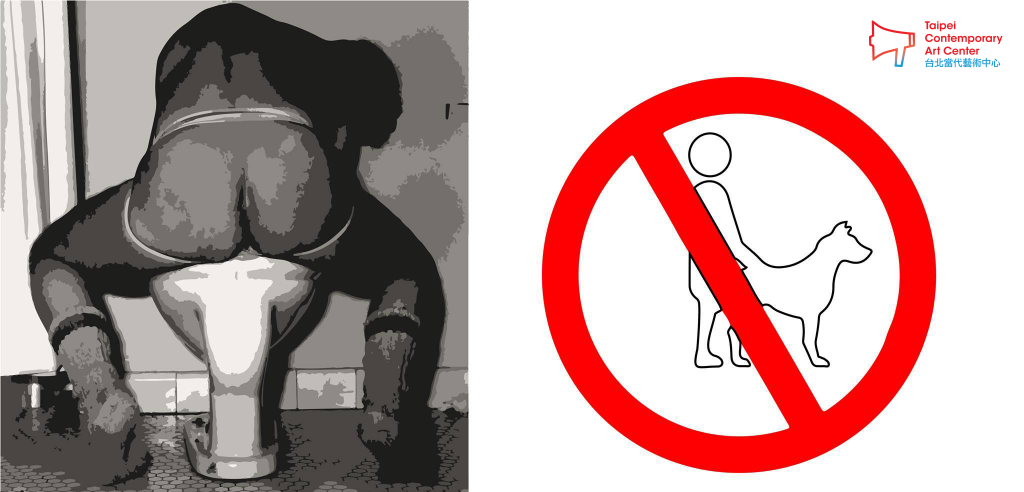For English, please scroll down
時間:2017/07/13 (四), 7-9PM
地點:台北當代藝術中心(台北市保安街49巷11號,捷運大橋頭站)
講者: 張竣昱、江昱呈
本活動將以中文進行
上半場:作品即檔案?檔案即作品?─機構詮釋下的Robert Mapplethorpe及其不滿
對於性汙名檔案的意義開拓,機構的慣用話語為何?侷限為何?誰吃這套?Google可以搜尋到的Mapplethorpe作品,多是尺度偶有大膽、構圖匠心獨運的「好」照片。這個「好」作品的模式看似是他創作生涯最重要的一頁,背後其實也涉及美術館和藝術市場在1980年代下的話語模式,甚至和當時性別運動的論述需求有關。在慣習的話語場域中,SM和裸體兒童題材的攝影作品雖然成為媒體爭議的焦點,但對於性的次文化論述與參照座標卻付之闕如,因為這不是美術館的討論方式和重點。如此,他的這些好照片,真能被稱為SM「地下文化的檔案紀錄」?如果對於性邊緣群體的我們而言,進到美術館曾經被視為一種策略,那麼我們真有辦法透過美術館的作品/檔案詮釋,了解我們的性汙名來源?這一切看似策略的進路,難道是為了維持藝術世界運作,卻為解放的滯後再添一磚一瓦?
下半場:污名檔案作為污名連線的政治可能—從動物戀網頁事件簿分析「性解放」網頁的檔案庫方法的政治性
2003年何春蕤教授被媒體報導所建立的「性解放」網站中含有人獸交的網頁,報導引發各方學術教育機構、保守團體負面輿論的撻伐,進而聯合立法委員提告。同時間,針對學術自由和動物戀議題的討論也在各方媒體上展開引起激烈的筆戰,以及國際、學界的連署也加入聲援。事件經過當中,令我感興趣的是何教授在針對「動物戀網頁」的資料庫建置所建構的超連結特性,內容不僅侷限於學術研究資料,更包含網路圖片、大眾文章、文學等不同切面跟動物戀有關的資料收集。其建置方式,或說整個「性解放網站」(後改名性政治)的建置,透過網路傳輸媒介來達成持續開放的污名政治連線,或可作為海瑟愛在〈污名的比較:殘障與性〉對於高夫曼《污名》一書所使用資料比較方法上所聯想到的污名連線的可能政治方案,和作為酷兒政治所欲實踐的結盟方法。
參考連結
“Does Mapplethorpe Still Matter?”
“Why Mapplethorpe Still Matters?”
〈地窖裡的詭奇身體:梅波索普愉虐攝影中的酷兒陽剛〉
動物戀網頁事件簿
性政治資料庫網站
海瑟愛〈污名的比較:殘障與性〉
關於講者
張竣昱,中央大學英文系畢業、藝術學研究所碩士生,「流行文化學院」網站成員。研究興趣包括酷兒理論、性/別政治、當代藝術、美術館和展覽中的文化政治、視覺文化理論、意識形態與歷史書寫。以恨作為心理動力才能寫作論述讀書進取的人。
江昱呈,目前就讀北藝大藝術跨域研究所,主修文化生產與策展,雜讀性/別、殘障研究和人類學、STS、文化研究相關領域文章理論書籍,但不一定讀得清楚。近期關注污名如何在特定情境底下來回滑移轉化的過程,同時反向作為積極串連他者的政治可能,但至今還在嘗試找尋自己的方法,正在學習該如何跟他人討論這樣複雜的關係網絡之間的矛盾和困境,我們可以有何準備。
關於辛沙龍
TCAC在2017年所全新推出的《辛沙龍》系列將首度嘗試透過展演情境創造和焦點議題的發展來輪廓未來政治的形貌。全年度的活動節目將從「身體政治」的再出發來思考各種切身於社會關係組織、政治權力的議題,從性和死亡等兩大軸線來探索不同文化如何理解身體作為當代社會中作為何種政治媒介、意識形態、文化符碼和結構規訓的載體。從而觀看身體在文化歷史上、在藝術文本中如何展現、交織、再現個體和集體的慾望和運作;在政治經濟上,又如何可能被歸納到各種被英雄化、神聖化、殘疾化、工具化、機械化、畸形化、妖魔化等狀態。這些身體政治的問題意識將引導我們重新關注並辨識自身現代化的真正起始點,並思索所處當代社會身體的病徵。相關的子題或將擴延至情慾、性別、身份政治、酷兒研究、女性主義、暴力、痛苦、死亡、後網路、賽伯客等,以長達兩年的時間來梳理關於身體實踐之徑。
辛沙龍系列關注如何在21世紀創造一種新型態的藝術沙龍聚會發表以滋養公共領域的知識生產與藝術實踐,讓藝術家與各界人士得以在一種共學、協作的過程裡展開長期對話性的研究討論、展示實驗、創意激盪並衍伸更多展覽形式以外的藝術言說方式來和觀眾/參與者進行溝通,演練奇想空間場域。這同時將作為TCAC開發公共領域擴延思索以及藝術實驗場的手段,刺激在地藝術社群擴延議題思想和跨文化交流的範疇,以此投射對藝術中心在空間敘事、身份功能、社群關係上的開放想像。
Time: 2017/07/13 Thurs., 7-9PM
Venue: Taipei Contemporary Art Center, No. 11, Lane 49, Baoan Street, Taipei (MRT: Daqiaotou Station)
Speaker: Cliff Chang, Ben Jiang
The event will be conducted in Chinese.
Section 1: Practices are archives? Archives are practices?── the Institutional interpretation of Robert Mapplethorpe and its dissatisfaction.
What is the institutional discourse while mentioning expanding the meaning of sexual stigma archives? What would be the limited scope? Who will accept them? We can google Mapplethorpe’s “great” photos, most of which are bold and ingenious in composition. Those form of the “great” photos seems to be the most tremendous part of his work. In fact, it involves the mode of discourse between fine arts museums and art market in 1980s. It is also relevant to the demand of discourse of gender movement at the same time. In the discourse fields, the SM photographs and nude children themes become the focus of mass media though, the subcultural discourse and coordinate for reference of sex are still quite deficient, and these aren’t the way of discussion and the main point of fine arts museums. So, are these his great photos will be described as the archives and documents of SM underground culture? As the group of marginalized sex like us, if involving in the fine arts museums was once regarded as a strategy to realize the sources of sexual stigma. Can we really interpret through the practices and archives of fine arts museums? All these seem strategic, which in order to maintain the operation of art world, but multiply more obstacles for the hysteresis of liberation.
Section 2: Political possibility of stigma archives as stigma connection- the political archiving methodology of analyzing Sexual Liberation Web from Zoophilia Wedpage Incident.
In 2003, Taiwan media reported that Professor Josephine Chuen-Juei Ho’s website, Sexual Liberation, contained the contents of zoophilia. The reports were aroused negative opinions from other academics, educational institutions and conservative groups, which even sue her with legislators. At the same time, the discussion of academic freedom and zoophilia issues fiercely breaks out in the media, including the support from the globe and the academics. What happened to me was what I was interested in the construction of the hyperlinks in the database for the “Zoophilia Wedpage Incident” page. The content was limited to academic research materials, including web pictures, popular articles, literature, and etc. Its construction, or the construction of the entire “Sexual Liberation” (renamed as Sexual Politics), uses the Internet to achieve a sustained and open stigma political connection, or as “The Case for Comparison:Stigma between Disability and Sexuality” written by Heather Love, the possible political program of the stigma associated with the method used in the Erving Goffman’s “Stigma” and the method of alliance as the practice of queer politics.
Reference
“Does Mapplethorpe Still Matter?”
“Why Mapplethorpe Still Matters?”
Bizarre Body in the Cellar: Masculine Queer in Robert Mapplethorpe’s SM photography
Zoophilia Wedpage Incident
Sex Politic Database
The Case for Comparison:Stigma between Disability and Sexuality, Heather Love
About Speakers
Cliff Chang, gurated from Department of English at National Central University, Taiwan, postgurate in Art Studies, Chang is the member of Pop Culture Academy. His research field interested in queer theory, sex and gender politic, contemporary art, culture politic in museums and exhibitions, visual culture theory, ideology and historical writing. He takes hatred as the motivation to write, read and research.
Ben Jiang is currently studying in Taipei National University of the Arts of Trans-disciplinary Arts, majoring in cultural production and exhibition curating. He interests in sex and gender, disability research and anthropology, STS, cultural studies related fields, theoretical books, but not guaranteed to close read them. The recent concern is the dynamic situation of stigma in a particular context, while reversing the political possibility of actively connecting others. However, he is still trying to find their own ways, and learning to discuss complex relationships with others and how we can prepared for this.
About the Salon Spice
In 2017 TCAC is launching a new program series as an attempt to contour future politics by creating a tangible open space for connecting experimental displays and thematic discussions: the Salon Spice. Taking a departure from “body politics”, the Salon Spice will contemplate issues related to social organization and the distribution of political power from two main subjects “sex” and “death.” We will explore how bodies are at the center of this topic, subject to political agency, ideology, cultural symbol, structure and discipline across different cultures. Through a cultural and historical lens, we shall examine how bodies are presented and connected by their representation among individual and collective desires and manipulations in art. Politically and economically speaking, we will investigate how bodies are constantly labeled and classified as heroes, holy figures, witches, or the disfigured. The abnormal, alienated, instrumentalized or body-as-machine figures shall also be examined. These problematic topics will lead us to rethink and identify the real starting point for our very own modernization progress, and link with the symptoms of the contemporary social bodies. Related topics may also extend to eros, gender, identity politics, queer studies, feminism, violence, pain, death, post-internet, cyborg, etc.
The Salon Spice series suggests how to create a 21st century art salon that meets diverse variations of contemporary knowledge production, artistic practice and development of public sphere. It aims to create a co-learning collaborative environment and process for artists and other professionals by building conversations and navigating through research, display experiments, brainstorming, and other artistic communication beyond the form of exhibition-making, and together, exercising the space with fantasy and intervention. This could be considered as one of the strategies for TCAC to expand the public realm and art experimentation, providing a progressive platform for the local art community to explore ideas and intercultural exchanges that can be a part of the public imagination for the art center’s space narration, institutional identity, function and community.

